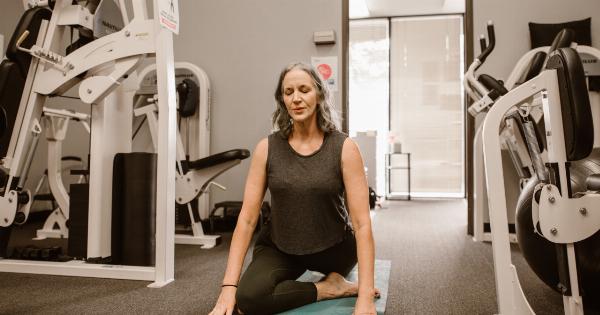Menopause is a natural stage in a woman’s life that marks the end of her reproductive years. While it is a normal transition, menopause brings about various physical and emotional changes.
Among these, hot flashes and night sweats are two of the most common and distressing symptoms that many women experience during this time. Not only do these symptoms disrupt daily life, but they can also have a significant emotional impact on women, affecting their overall well-being and mental health.
Understanding Hot Flashes and Night Sweats
Hot flashes, also known as vasomotor symptoms, are sudden feelings of intense heat that can spread throughout the body, particularly in the chest, face, and neck areas.
They typically last for a few minutes and often come with sweating, palpitations, and a reddening of the skin. Night sweats, on the other hand, are hot flashes that occur during sleep, leading to excessive sweating and soaking of the sheets and bedding.
The Physical Effects of Hot Flashes and Night Sweats
Hot flashes and night sweats can create significant physical discomfort, making it difficult for women to carry out their daily activities. They can disrupt sleep patterns, resulting in chronic fatigue and insomnia.
Inadequate rest can lead to decreased productivity, memory difficulties, and difficulties in concentration. Furthermore, the sudden surges of heat can be embarrassing and uncomfortable, causing women to feel self-conscious and frustrated.
The frequency and severity of hot flashes and night sweats vary significantly among women. While some may experience them occasionally, others may have several episodes per day. The duration can also vary from a few months to several years.
These varying factors can further aggravate the emotional impact of these symptoms on women, causing them to feel out of control and anxious about future episodes.
Emotional Impact: Anxiety and Depression
Hot flashes and night sweats can have a profound emotional impact on women, often leading to increased levels of anxiety and depression.
The unpredictable nature of these symptoms can generate feelings of fear and uncertainty, as women may worry about experiencing embarrassing episodes in public or during important events. The physical discomfort associated with hot flashes and night sweats can also contribute to a general sense of unease and irritability.
In addition, the hormonal changes that occur during menopause can affect the brain’s chemistry and contribute to mood swings and emotional instability.
Fluctuating hormone levels can disrupt the production and regulation of neurotransmitters, such as serotonin and dopamine, which are crucial for maintaining stable moods. These imbalances can heighten feelings of sadness, frustration, and irritability, and may even increase the risk of developing clinical depression.
Impact on Relationships and Intimacy
The emotional impact of hot flashes and night sweats is not limited to the individual experiencing them. These symptoms can also have a ripple effect on relationships and intimacy.
The physical discomfort and mood disturbances associated with hot flashes and night sweats can lead to decreased libido and sexual desire, causing strain in romantic relationships. The fear of experiencing a sudden hot flash during intimate moments can create anxiety and avoidance behaviors, further impacting emotional and physical intimacy.
Coping Strategies for Emotional Well-being
While hot flashes and night sweats can be challenging to manage, there are several coping strategies that can help minimize their emotional impact:.
1. Seek Support: Reach out to friends, family, or support groups to share your experiences and feelings. Knowing that you are not alone can offer comfort and a sense of normalcy.
2. Maintain a Cool Environment: Dress in lightweight and breathable clothing, keep the room temperature comfortable, and use fans or air conditioning to reduce the intensity of hot flashes and night sweats.
3. Relaxation Techniques: Practice relaxation techniques, such as deep breathing exercises, meditation, yoga, or tai chi, to help reduce stress levels and promote a sense of calmness.
4. Regular Exercise: Engage in regular physical activity, such as brisk walking or swimming, to help regulate hormone levels and reduce the frequency and severity of hot flashes and night sweats.
Exercise also releases endorphins, which can improve mood and emotional well-being.
5.
Healthy Lifestyle: Adopting a healthy lifestyle, including a balanced diet, limiting caffeine and alcohol intake, avoiding smoking, and getting an adequate amount of sleep, can help alleviate the intensity of symptoms and improve overall emotional well-being.
6. Hormonal Therapy: In severe cases where symptoms significantly affect quality of life, hormone replacement therapy (HRT) may be considered under medical supervision.
HRT can help alleviate hot flashes and night sweats, thereby reducing the emotional impact associated with these symptoms.
Conclusion
Hot flashes and night sweats are not simply physical symptoms; they also carry a significant emotional burden. Coping with the associated anxiety, depression, and relationship strains is crucial for maintaining overall well-being during menopause.
By seeking support, implementing lifestyle changes, and considering medical interventions when necessary, women can better manage these symptoms and minimize their emotional impact.






























